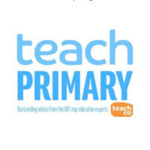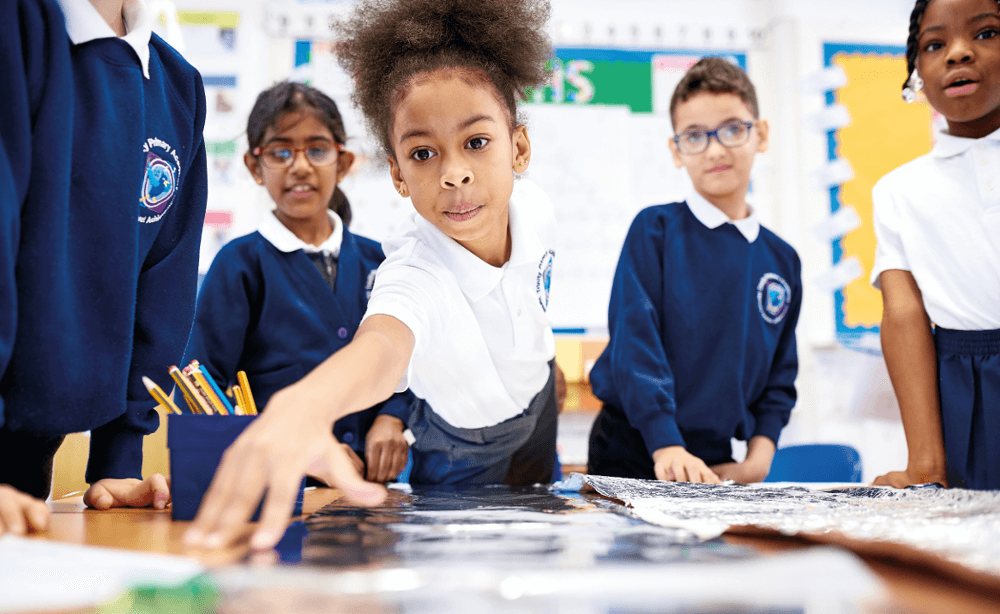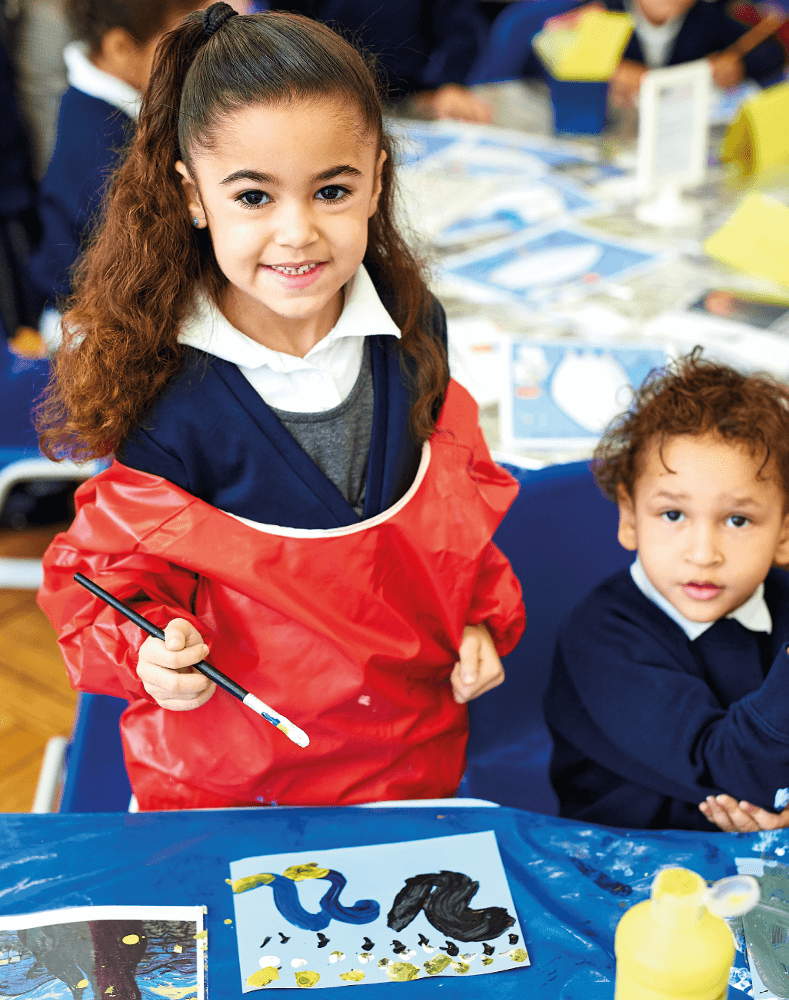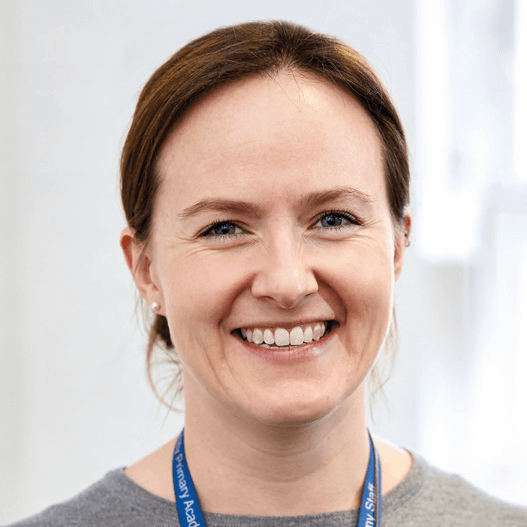High Expectations Helped to Propel This Academy to ‘Outstanding’

It’s about the children, not a label, says headteacher Melissa Martinez…

- by Teach Primary
- Leading professional development magazine for KS1 and KS2 educators

The word ‘journey’ is overused these days. From reality TV to corporate literature, it’s liberally scattered around to describe a supposedly profound transformation or triumph in the face of adversity.
Overused it may be, but it’s hard to avoid when describing the last seven years at Trinity Primary Academy in Wood Green, north London.
And if ‘profound transformation’ is a suitable definition, then Trinity certainly ticks that particular box. Back in 2012, the school had a different name: Nightingale Primary School, judged by Ofsted as inadequate.
Since then there have been some very significant milestones, starting with the change of name following a takeover by the Academies Enterprise Trust.
In 2014, Trinity underwent a first full inspection under its new guise and although progress had been made, the overall judgement by Ofsted was that improvement was required.
When the inspectors returned two years later, they awarded Trinity with ‘outstanding’ status. The school received further acknowledgement when Sadiq Khan, mayor of London, honoured Trinity with a Schools for Success award last October in recognition of its support for pupils needing extra help to fulfil their potential.
On board for most of this journey has been Melissa Martinez, who joined Trinity in 2013 as assistant vice principal before her promotion to principal last year. Her positivity and enthusiasm for the school is both clear and infectious.
Superlatives such as “brilliant” and “fantastic” pepper Melissa’s descriptions of the children, staff, work and achievements at Trinity; this is in stark contrast to her account of the way things used to be.
School Profile
 Name: Trinity Primary Academy
Principal: Melissa Martinez
Location: Wood Green, London
Ofsted rating: Outstanding
Size: 450 pupils
Extra info: The school belongs to Academies Enterprise Trust
Name: Trinity Primary Academy
Principal: Melissa Martinez
Location: Wood Green, London
Ofsted rating: Outstanding
Size: 450 pupils
Extra info: The school belongs to Academies Enterprise Trust
1 | Aiming higher

“The school had a very poor reputation in the community because of very low standards and low expectations in terms of behaviour,” says Melissa.
“It just wasn’t good enough. So the challenge was to completely change that mindset. We owe it to our children, to our community to do everything we can so that these children get the best deal possible.”
The community Melissa refers to is a diverse one, both culturally and economically.
She explains: “We have families from all walks of life and backgrounds. We have a very large Bulgarian community, a Romanian community, and also lots of families from Spain and Greece.
“There has been a bit of gentrification in the local area so you have some families that come from more privileged backgrounds, but we also have many families that come from deprived backgrounds, so it’s really important for us to know all of our individual children and their families to ensure we’re really going above and beyond.”
Despite the diversity of the intake, there is something shared by all at Trinity: high expectations.
The establishment of a ‘high expectations, no excuses’ culture was key to turning the school around, according to Melissa. “There’s now a belief that there are no barriers that we can’t overcome,” she says.
“So we had this shift where discussions around pupil progress became based around what more we could do to help a child succeed or to overcome a particular boundary. That was really important and made a huge difference in the journey of the school. We will never, ever write off any child.”
The children’s welfare became the touchstone for any improvement initiative at Trinity.
Melissa explains: “That was always the thing we came back to, that we’re doing this for the children. It’s about them, not a label. We’re doing it because it’s what the children deserve and we owe it to them.
“We were always looking for something that could have a really fantastic impact on our pupils. And when staff know that everything we’re doing is for the children and not for any other reason, that creates greater buy-in.”
One of the first initiatives in Trinity’s journey was to establish a set of non-negotiables across the school. These became the minimum requirement for the way things were run, from the overall learning environment, to lesson planning and specifics in teaching.
2 | Shining a light
As Melissa observes, the new way of working was a big change for members of staff who had been at the school for a long time, so an onus was placed on communication.
She explains: “Whenever we thought about what changes needed to be made in order to give our children the best possible deal, it was always presented and discussed among the senior leaders as a team to make sure we looked at things from different angles.
“The changes were then disseminated to smaller individual teams. We’d explain what we were proposing, but also how we were going to support our staff to ensure everything could be the best it could be.”
Central to that communication and support was identifying what Melissa calls “shining stars”.
“No matter what situation you’re in, you need those people to support their colleagues and champion the initiatives because it gives everybody something to work towards,” she says.
An example was setting standards in children’s daily work. A set of non-negotiables were introduced and shining stars were selected who could quickly demonstrate the impact the initiative was having.
Melissa explains: “You could really see improvement in the children’s basic skills from their work and it was about holding up examples and getting those shining stars to communicate to the team and say, ‘This is how I was able to achieve it.’”
Communication with the local community was also important. Because the reputation of the school needed rebuilding, it was necessary for Trinity to engage with parents and show them the improvements being made.
“Very early on, we needed to ensure parents and our local community knew exactly what our vision was at the school and get them involved in that process of change,” says Melissa.
“For example, we got them into classrooms to see the learning that was going on. That had a really big impact in terms of encouraging people to come to us and be a part of this journey.”
The strategies and systems put in place between 2013 and 2014 achieved rapid improvements and provided a solid foundation, with every member of staff allocated a direct line manager holding them to account and providing a clear line of support.
This solidity allowed innovation to take place, which Melissa believes lifted the school to a different level. One of the clearest results of the new ways of working was the children’s renewed love for learning, she says.
“What we were noticing from all of the efforts the staff had made was that the children were really taking pride in their work. They were showing such a sense of achievement.”
According to Melissa, a change in mindset among the staff was also evident, in terms of their expectations of what the children could achieve. “As time went on, early achievements were built upon and those shining stars were really setting an example,” she says.
“This meant we were able to help other teachers reach their potential and expectations continued to increase.”
3 | Growing talent
Melissa is proud to say a solid core of staff have stuck with Trinity through the journey. “We’re very lucky here because we have a very low turnover but we’re always thinking ahead to make sure we’ve got a really fantastic pool of ambitious and committed teachers,” she says.
To this end, the school has adopted what Melissa calls a “grow your own” policy. As well offering placements to student teachers, Trinity employs graduate teaching assistants and works very closely with them to offer bespoke support if they want to progress to become class teachers.
“We’re very proud of the fact we have a couple of members of staff here who started off as graduate TAs and are now the most fantastic teachers,” says Melissa. “We’re very quick to spot any talent and establish conversations with them and ask them if they’ve considered a job here.”

The grow-your-own approach offers several advantages, according to Melissa. “They are fully on board with the values of the school, with the way things work here at Trinity,” she says.
“They’re all very familiar with the systems, our expectations and with the children. It provides a really fantastic foundation, and of course they’re invested in the school and fully committed.”
One of the results of the school’s improvement in core areas is that it has acquired a reputation for academic success, but Melissa is keen to emphasise the richness and variety of the curriculum, and the teaching talent that delivers it.
“Here at Trinity we’re very lucky to have teachers with musical backgrounds, experience in the performing arts and degrees in science,” she says.
4 | Leading the way
The all-round education Trinity aims to offer its children also encompasses so-called soft skills. Pupil leadership, for example, is high on the agenda.
“It’s about going beyond the school curriculum and thinking more about the life skills our children need, such as problem solving, decision making and self-reflection,” explains Melissa.
Each year, children have the opportunity to apply for a pupil leadership accreditation. The children are responsible for putting together their own portfolio and demonstrating their leadership credentials.
Trinity has also recently launched a pupil leadership pathway. Melissa explains: “It starts off with classroom champions, who have their individual roles.
Then, children can apply to become a playground buddy, so that means supporting other children in play, helping them to socialise with other children.
Then there’s the pupil leadership team, which will support and drive the school in a particular area, and finally the house captains and head pupils. It’s a really exciting adventure for the children.”
Trinity’s success is evident not only in its official accolades but also its growing reputation. In September, the school is moving to three forms of entry in reception. And the ambition remains as strong as ever.
Among the school’s plans for 2019 is greater collaboration with with other schools. “We’re working really hard to form links with local primary and secondary schools, not just in terms of teachers coming to work together and learn from each other but also for our pupils,” explains Melissa.
“We’ll be looking at sharing best practice across the different schools and making that transition from primary to secondary school a lot smoother.”
The Academies Enterprise Trust is as enthusiastic as Melissa about Trinity’s progress. Chief executive Julian Drinkall says: “At AET, we believe passionately in helping every pupil to go on to lead a remarkable life. At Trinity, that vision has very much become a reality.
Melissa and her team are doing a brilliant job and we are delighted that Trinity will be welcoming even more children next year as we grow to a three-form entry primary.”
One thing Trinity will not be doing is resting on its laurels. “That’s what’s so wonderful about the school,” says Melissa. “We’re always asking what else can we do, what more can we do for our children. The journey doesn’t end.”
Pupil voice
Dayal
 The most fun part of our school is performing arts and clubs like glee club. We even performed at Alexandra Palace. It gives us the chance to show off our talents, not just to the school but to the public too.
The most fun part of our school is performing arts and clubs like glee club. We even performed at Alexandra Palace. It gives us the chance to show off our talents, not just to the school but to the public too.
Alesha
 In maths, we have the mastery flow, which involves various activities such as ‘show’, ‘do’, ‘explain’ and many more, and you have to complete every task. It gives you the opportunity to work with other people and combine ideas.
In maths, we have the mastery flow, which involves various activities such as ‘show’, ‘do’, ‘explain’ and many more, and you have to complete every task. It gives you the opportunity to work with other people and combine ideas.
Eric
 What I like about this school is the opportunity to be a leader. You get to guide parents around, there’s school council and the pupil leadership team. You get to really be a part of the school and offer support.
What I like about this school is the opportunity to be a leader. You get to guide parents around, there’s school council and the pupil leadership team. You get to really be a part of the school and offer support.
Mumtaza
 We have special breakfasts, like a maths breakfast or science breakfast. And I like the challenges where we can win badges. At the end of the year we have ‘winter fun day’, where the teachers schedule activities throughout the whole day.
We have special breakfasts, like a maths breakfast or science breakfast. And I like the challenges where we can win badges. At the end of the year we have ‘winter fun day’, where the teachers schedule activities throughout the whole day.
The competitive spirit of Trinity Primary Academy
The children at Trinity thrive on competition. This is a characteristic the school has harnessed to motivate pupils and improve their knowledge.
“We have many challenges,” says Melissa. “It’s all about providing children with that incentive to secure basic skills.”
An example is the ‘144 challenge’, a multiplication initiative where the children have a set number of times tables questions to complete within a set time and if they succeed, they earn themselves a 144 badge.
Such schemes help to push the children further. Melissa explains: “They spend a very long time practising their skills. They are generally able to complete challenges quite quickly, so we’ve had to innovate and have all sorts of competitions.”
Now there’s the platinum challenge, the diamond challenge and the ultimate challenge, for which the children need to be able to answer questions using a range of arithmetic skills.
The approach has been so successful, it’s now used in other areas of the curriculum, with spelling challenges, for example.
“It gives the children confidence but it also means that the children want to be able to achieve and be the best or fastest,” says Melissa.
Farzana Iqbal
Assistant vice principal and phase leader
 We make it really clear to the children what the high expectations are in terms of behaviour, learning, reputation, representing the school both inside and outside. We have high expectations of teaching and learning right across the school, and the children have high expectations of the staff as well.
We make it really clear to the children what the high expectations are in terms of behaviour, learning, reputation, representing the school both inside and outside. We have high expectations of teaching and learning right across the school, and the children have high expectations of the staff as well.
Charlotte Leisure
Assistant vice principal and phase leader
 The CPD here is really good at is building capacity in each team. It’s very specific to the needs of the staff at the time. That means whatever it is we’re doing, that capacity is there for us to develop in ever y way. And it meets the needs of the newly qualified teachers, and refreshes those who have been here longer.
The CPD here is really good at is building capacity in each team. It’s very specific to the needs of the staff at the time. That means whatever it is we’re doing, that capacity is there for us to develop in ever y way. And it meets the needs of the newly qualified teachers, and refreshes those who have been here longer.
Tejpal Lander
Assistant vice principal
 We’re very keen to embrace the different cultures and home backgrounds of our children. Back in the summer we had the Trinity food fair. Parents really engaged with it and brought in various delicacies. The children also throw themselves into these situations.
We’re very keen to embrace the different cultures and home backgrounds of our children. Back in the summer we had the Trinity food fair. Parents really engaged with it and brought in various delicacies. The children also throw themselves into these situations.
Michelle McCaw
Music and performing arts coordinator
 At the end of last year we did our first full musical. The children auditioned for parts and they all worked so hard, and they were fabulous. We treated it as if they were preparing for the West End. That was our high expectation, and they rose to that. They really wanted to be the best they could be.
At the end of last year we did our first full musical. The children auditioned for parts and they all worked so hard, and they were fabulous. We treated it as if they were preparing for the West End. That was our high expectation, and they rose to that. They really wanted to be the best they could be.










